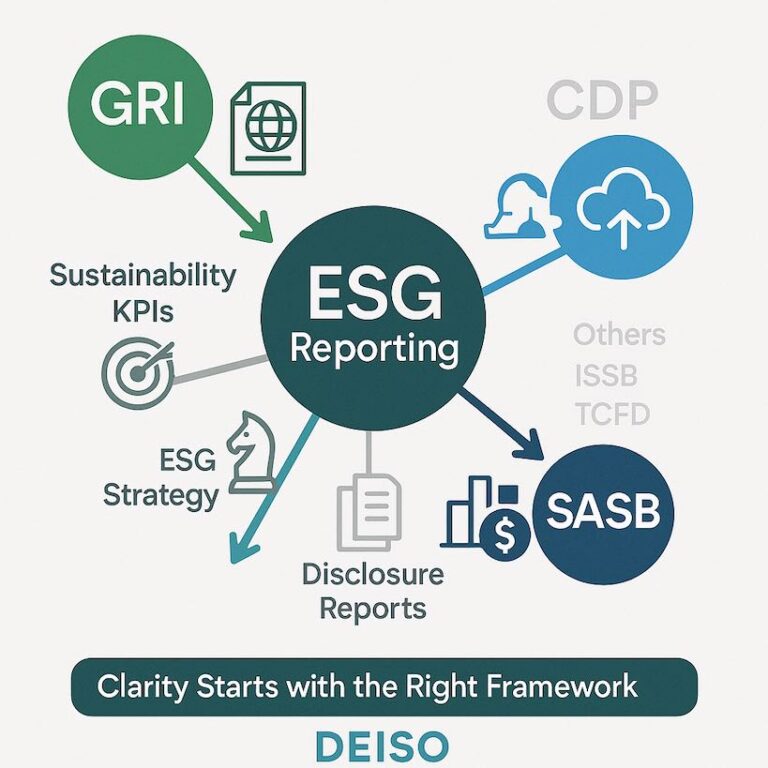The right reporting approach depends on your structure and exposure:
- Are you a large or listed company falling under EU sustainability reporting requirements?
- Are you preparing to meet investor or procurement ESG expectations?
- Are you an SME that wants to organize internal policies and communicate accountability to partners?
Understanding your position is the first step toward a tailored compliance plan.


